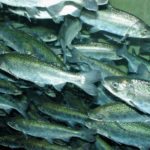Over the past two decades feeding a variety of fat and oil sources to horses has become an increasingly commonplace dietary practice. The role of fat in the horse’s diet has been oversimplified to that as a fuel source. Although this is partly correct that fats can act as fuel molecules, it is equally critical






